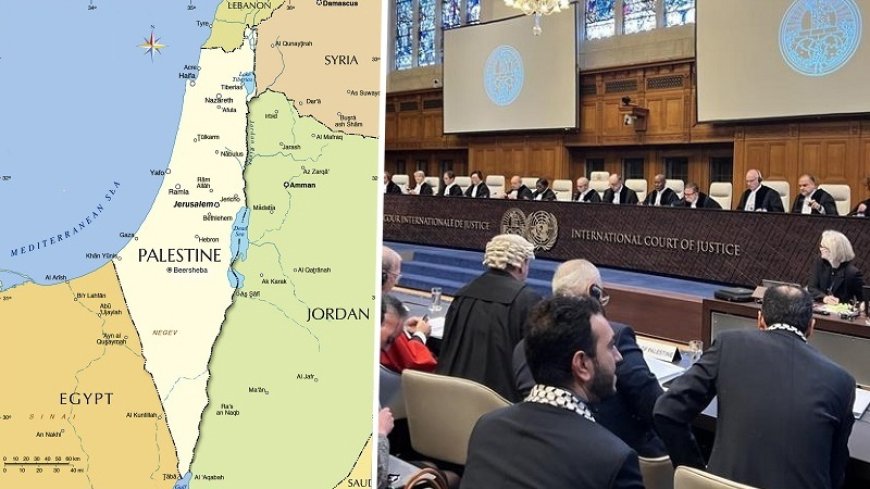ICJ Ruling on Palestine Sparks Controversy
Recently ruling on the Palestinian right of return, the International Court of Justice (ICJ) limited this to individuals displaced during the 1967 war. This choice has drawn criticism for not addressing the more general problem of Palestinian displacement—including those resulting from the 1947 division. With many believing it supports Israel's domination, the court's decision comes amid continuous discussions over justice and colonialism in international law.

Recently ruling on the Palestinian right of return, the International Court of Justice (ICJ) limited this to individuals displaced during the 1967 war. This choice has drawn criticism for not addressing the more general problem of Palestinian displacement—including those resulting from the 1947 division. With many believing it supports Israel's domination, the court's decision comes amid continuous discussions over justice and colonialism in international law.
Under United Nations Resolution 181, the split of Palestine in 1947 assigned 56% of the land to European Jewish immigration, so laying the groundwork for decades of strife. During the Six-Day War, Israel increased its hold by grabbing the West Bank, Gaza Strip, and other areas in 1967 Critics contend the ICJ's ruling essentially separates Palestinian history into "visible" and "invisible" sections, therefore excluding Palestinians displaced prior to 1967.
Notwithstanding growing proof of systematic persecution of Palestinians, the decision refrained from calling Israeli practices apartheid. Analysts contend that this omission compromises initiatives to hold Israel responsible for abuses of human rights. Many view the decision as distorting the occupation of Palestine to a limited legal matter instead of tackling the larger background of colonialism and injustice.
Still debatable is the United Nations' involvement in the Palestinian problem. Originally seen as a tool for justice and equality, detractors today charge the UN of supporting colonialism. The UN has battled to reconcile its values with geopolitical reality since the British Mandate encouraged Jewish immigration to Palestine. The ICJ decision accentuates views of the UN as supporting Israeli supremacy.
Notwithstanding the restrictions of the ICJ, campaigners see chances to galvanize people using the decision. Campaigns aiming at challenging Israel's policies and advocating change are Boycott, Divestment, and Sanctions (BDS). Political lobbying, financial penalties, and public pressure could force the world system to change its posture. For many, the fight for Palestinian justice still as much a political as a legal one.













































